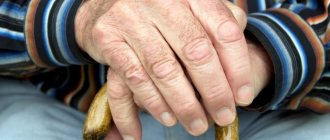Consultation via Skype or WhatsApp is available.
Fear of death is a natural reaction of the psyche, which underlies self-preservation. This feeling is inherent in absolutely all living beings. We value life because we understand that we are mortal. It is the fear of dying that makes a person more attentive and careful. This avoids taking unreasonable risks.
But sometimes this feeling becomes so strong that it does not help, but hinders life. In this case, it is customary to talk about a pathological condition - thanatophobia. It is based on a panicky fear of death, which arises for no reason, mainly at a young age.
A person is tormented by obsessive thoughts about inevitable death. He stops going outside because it is dangerous there. Any discomfort in the body is perceived as a symptom of a serious illness. Mentions of funerals, cemeteries, and ghosts lead to a panic attack. The meaning of life is lost, which leads to loneliness and the development of depression.
Fear of death also occurs in people who suffer from panic attacks or neuroses. This condition requires treatment from a psychotherapist or psychiatrist.
General information
Thanatophobia is a condition in which a person develops anxiety caused by thoughts of death - his own or those of loved ones.
This is one of the phobias in which a person experiences irrational fear and finds it difficult to control his feelings. In contrast to the rational fear of death, caused by the fear of dying from disasters, accidents, and diseases, people with thanatophobia feel irrational anxiety, which is not supported by real grounds. At the same time, they experience a complex of unpleasant sensations that significantly interfere with normal life. Sometimes they are unable to cope with this condition, and they are forced to isolate themselves from society, quit their jobs, etc. As Wikipedia and other sources testify, fear of death is one of the reasons for the development of depression, neuroses and other mental health disorders. The signs of thanatophobia, as well as how you can improve the condition of a person with such a phobia, will be discussed in this article.
Psychologist's advice and treatment
Therapy is selected based on why a person is afraid of dying. After identifying the source of the problem, it is recommended to accept the fact that it is impossible to avoid the end of life. Death is neither bad nor good. If a person has relatives or friends, then the departed person remains in their memory forever.
The patient needs to understand that there is no second chance to live life, so it is necessary to receive maximum happiness and benefit from everything that happens. The opportunity to experience joy should not be missed. If you constantly worry about your impending death, you can miss your long life without knowing what it means to be happy.
Positive thinking has been proven to speed up the recovery process from physical illness. When the problem is psycho-emotional in nature, optimism is one of the best medicines.
Pathogenesis
If in a normal state the fear of death appears in people under certain circumstances and disappears when the danger has passed, then with thanatophobia, obsessive thoughts are disturbing, even if there are no specific stimuli. Often people with this disorder realize that they have no reason to be afraid of death, but this understanding still does not make the anxiety go away.
The emergence and development of a phobia may be a consequence of the influence of several factors. Heredity, past psychological trauma, the inability to adapt to difficult circumstances, characteristics of family upbringing, etc. can influence its development.
How to treat thanatophobia
It is impossible to cure this phobia on your own. In addition, only a professional can correctly diagnose thanatophobia, because there are many causes of its occurrence and possible complications.
The necessary qualified specialist assistance can be obtained at our medical center. Experienced doctors will diagnose the disease and prescribe the appropriate course of treatment. They will help eliminate obsessive states and improve the patient’s quality of life.
One of the methods of dealing with this disorder is to instill in the patient the confidence that life is valuable in the present. If you are afraid of the unknown in the future, enjoy the present. With the help of our specialists you will learn these practices.
The necessary course of treatment and rehabilitation is selected individually for each patient. The leading methods of treating thanatophobia are hypnosis and cognitive behavioral psychotherapy.
Take the first step towards treating your phobia - make an appointment at the KORSAKOV clinic!
Classification
There is no generally accepted classification of thanatophobia. However, it can be divided into several varieties depending on the prerequisites that provoked the development of this pathology.
- Biological prerequisites - phobia is caused by a predisposition of the nervous system to the manifestation of generalized reactions. Diseases, lack of sleep, congenital characteristics of the body, etc. can predispose to this.
- Psychological prerequisites are associated with disturbances in the education system, in particular with increased guardianship and anxiety.
- Social preconditions - associated with the wrong reaction to a variety of situations.
Causes of fear of death
There is an opinion that the fear of death is formed in childhood, but manifests itself in adulthood, when circumstances develop in a certain way. That is, if for certain reasons a child develops incorrect ideas about death, then in adulthood this can lead to the development of phobias.
An exacerbation of the fear of dying may occur when the following events occur:
- disasters;
- terrorist attacks;
- car crashes;
- tragic events related to a person (for example, he was late for a bus, which then got into an accident).
Also, a constant fear of death can develop due to the influence of such factors:
- loss of loved ones, especially when they die at a young age;
- constant fear of what awaits a person after death;
- fear of torment, pain;
- fanatical religiosity, superstition;
- increased suggestibility;
- a feeling of the futility of life, the frailty of existence;
- loneliness, low self-esteem;
- fear of losing control in a certain situation.
Thanatophobia most often develops in those who live in cities. Middle-aged men and older people are most susceptible to developing this condition.
This condition can also develop against the background of diseases: neurosis , anxiety disorders , etc.
Popular questions and answers
We discussed why the fear of death arises, how to deal with it, and whether folk methods or dietary supplements will help here with psychotherapist Sergei Prokin.
Question: Are there possible complications of this phobia, does it affect the ability to work, does it threaten disability or death?
Answer: Complications, first of all, are the social restrictions that arise as a result of phobias, and these can be significant. There is no such thing as disability. But constant fear and panic attacks can lead a person to uncontrollable actions, problems in communication, he can lose his family, job, friends, and without the help of a specialist, a phobia can literally “poison” life.
Question: Is it possible to recover from the fear of death on your own or with the help of unconventional methods? Answer: There are no proven effective dietary supplements, herbs or traditional methods for treating phobias. Moreover, the practice of such self-medication can only worsen the situation; any drugs, including herbal and dietary supplements, have side effects. They can worsen your health, which will only increase the fear of death.
Published on the portal kp.ru
Symptoms
Fear of death is a feeling that is associated with the instinct of self-preservation. However, thanatophobia is manifested by a number of pathological symptoms:
- Obsessive thoughts about death.
- Feeling of paralyzing horror at thoughts of death.
- Increased suspiciousness.
- Excitement.
- Aggression and irritability.
- Increased sensitivity, tearfulness.
- Doubt about your own health.
- Obsessive worry about specific problems: “I will die of a heart attack,” “I will die in an accident,” etc.
- Increased reaction to conversations about funerals and death-related paraphernalia.
- Sleep disorders.
In addition, along with mental disorders, somatic ones also appear. Such symptoms make the phobia worse. The following manifestations are likely:
- Increased blood pressure, tachycardia .
- Fainting, dizziness .
- Nausea, gastrointestinal dysfunction.
- Sexual life disorders.
- Frequent urination.
- Appetite disturbances, anorexia .
- Shortness of breath , suffocation.
- Weight loss.
- Nightmares.
- Fatigue, deterioration in performance.
In some cases, thanatophobia can manifest itself as panic attacks that develop in inappropriate places. At such a moment, it seems to a person that he is dying, and such sensations only worsen the general condition. At the same time, he is unable to fight obsessive thoughts.
Signs of thanatophobia
Thanatophobia is an uncontrollable fear of sudden death, reflecting a person’s experiences of the future unknown. Thanatophobia is often present in educated, accomplished people who are accustomed to control over their lives. In the case of death, no control is possible.
Free consultation right now!
Online consultation with a specialist on your issue!
License number: LO-77-01-019036
For patients with thanatophobia, death is not an abstract concept, not a natural end to any life. They are literally fixated on their own fictional death. For example, someone is sure that he will die in a plane crash, so he refuses to fly on airplanes. Another constantly visits doctors and is examined because he expects an obligatory oncological disease and death from it.
Obsessive irrational behavior is accompanied by physiological symptoms:
- insomnia, sleep disorders,
- loss of appetite, gradual weight loss,
- the appearance of neurotic painful sensations.
Uncontrollable fear of death is exhausting, causes irritability and aggressiveness.
Without timely seeking help, the lifestyle of a patient with thanatophobia changes radically. Among the negative changes in severe forms of phobia are:
- separation from family and friends;
- reduction in the number of social contacts;
- refusal of everyday household chores and work responsibilities.
The patient gradually develops psychosomatic diseases. Constant stress increases the likelihood of using alcohol and drugs.
Thanatophobia can have different manifestations:
- fear of losing control,
- fear of pain or illness,
- fear of the unknown,
- fear of losing family and friends,
- fear of leaving relatives without care and support.
Quite often, the true essence of thanatophobia lies not in the fear of dying, but in the fear of the circumstances that accompany dying. Many are afraid of pain and deadly disease. Others consider the worst thing to be to remain incapacitated at the end of life and to be a burden to loved ones.
Write to WhatsApp
COST OF TREATMENT
In middle-aged people, thanatophobia is associated with concerns about the well-being of loved ones who will be left alone after their death. In addition, doctors note an increase in cases of panic fear of death in children and adolescents.
Secondary manifestations of thanatophobia are an uncontrollable fear of the dead, tombstones, other attributes of death and symbolism associated with the transition to another world. People try to distance themselves from them, do not visit cemeteries, and do not come to funerals.
Tests and diagnostics
To confirm the diagnosis of thanatophobia and the disorders that accompany it, you need to contact a professional psychiatrist. The doctor conducts a detailed conversation with the patient and asks clarifying questions.
During the diagnostic process, various questionnaires can be used to determine personality traits and types of fears.
Sometimes there is a need to consult with other specialists - a cardiologist, a therapist, etc. In turn, they may prescribe additional examinations.
Modern methods of treatment
You can overcome your phobias only by recognizing the existence of a problem and seeking help from specialists - a psychiatrist or psychotherapist.
The basis of treatment is cognitive behavioral therapy, medication, other types of psychotherapy, and the use of hypnosis. In the early stages, you can cope on your own under the guidance of a professional; in later stages, you need the constant help of a doctor.
You can also additionally use:
- communication with loved ones, conversations;
- physical activity, staying in the fresh air;
- proper nutrition without psychostimulants;
- rejection of bad habits.
Prevention
In order to prevent the condition from worsening when the fear of death manifests itself, it is necessary to follow some rules of prevention.
- Communicate with positive people who know how to inspire.
- Avoid negative information: crime news, disaster films, etc.
- Practice activities that help distract you from negativity, as well as read inspiring books.
- Communicate more with loved ones, family, friends.
- Eat properly.
- Play sports, walk a lot.
Diet
Diet for the nervous system
- Efficacy: therapeutic effect after 2 months
- Timing: constantly
- Cost of food: 1700-1800 rubles per week
It is recommended to consume foods that have a positive effect on the nervous system:
- Legumes, vegetables, greens.
- Fish and seafood.
- Cellulose.
- Fruits.
- Nuts, seeds.
- Olive and linseed oil.
- Dairy products.
- Lean meat.
The following products should be minimized:
- Sweets, baked goods, baked goods.
- Fat meat.
- Fried foods.
- It is recommended to minimize salt and foods high in salt.
- Alcohol.
Consequences and complications
People suffering from thanatophobia often experience negative emotions. Due to constant anxiety, it is sometimes difficult for them to perform everyday tasks, work, and communicate with people. This condition significantly worsens the overall quality of life.
In severe cases, the patient may not leave the house for a long time and stop most contacts with people.
An obsessive state can lead to the development of other mental disorders.
Constantly being under stress also negatively affects the functions of the immune system.
Another risk is the desire to relieve anxiety by drinking alcohol or taking drugs. As a result, the patient may become dependent on them.
Why is hypnophobia dangerous?
During sleep, the body gains strength for the coming day; if this does not happen, the immune system is the first to suffer. This leads to a feeling of chronic fatigue, an unstable nervous system, attacks of aggression and depression. Due to a negative mood, there is a feeling that everything around is against you and things are going downhill.
The professional sphere also suffers, as the ability to concentrate deteriorates, memory begins to fail severely, and the desire to achieve new goals fades away every day. If you don't treat hypnophobia, you get the feeling that it will always be like this.










